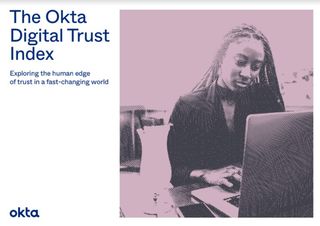Met Police faces legal action over "racist" Gangs Matrix database
There is no way for people on the secretive database to appeal against their inclusion or ask for the data to be reviewed

Human rights group Liberty is taking legal action against the Metropolitan Police over its controversial Gangs Matrix, a secretive database of suspected gang members established as part of the response to the 2011 London riots.
Liberty is challenging the lawfulness of the database, arguing that it discriminates against people of colour and breaches human rights, data protection requirements, and public law principles.
The human rights group is acting on behalf of musician and writer Awate Suleiman and Unjust UK, a community interest NGO that challenges unjust and discriminatory policing. Suleiman has been subjected to over-policing since he was a child and has tried to establish since 2019 whether he was on the Matrix, said Liberty.
Of those on the Matrix, 86.5% are Black, Asian, or other minority ethnic, and 79% are Black. Liberty said this was a stark figure, considering that only 27% of those convicted of offences related to serious youth violence are Black. It added the majority of the people on the Matrix, 65%, are considered by the police to be ‘low-risk’.
Despite this, those on the Matrix may be subject to a wide range of ‘enforcement actions’, including exclusion from benefits, housing, and education, as well as increased stop and search, said Liberty. Information on the Matrix is also shared with other bodies like immigration enforcement.
However, the Met Police doesn’t inform people if they are on the Matrix, and there’s no mechanism by which a person can appeal against their inclusion, or ask for the data held about them to be reviewed.
Liberty said this makes it hard for people on the Matrix to challenge their inclusion on it or the accuracy of the data held about them.
Get the ITPro. daily newsletter
Receive our latest news, industry updates, featured resources and more. Sign up today to receive our FREE report on AI cyber crime & security - newly updated for 2024.
“Secret databases that risk young Black men being excluded from society based on racist assumptions are not a solution to serious violence, they are part of the problem,” said Lana Adamou, a lawyer at Liberty. “The Matrix damages communities through division and alienation. We should be demanding better, evidence-based solutions that tackle underlying causes.”
In a letter to the Met Police, Liberty warned that the Matrix discriminates against BAME people, particularly Black people, who are disproportionately represented in the database. It also breaches the right to private and family life, with sensitive personal data about those on the database shared broadly.
Lastly, the group said it breaches the Public Sector Equality Duty for public authorities to eliminate discrimination, harassment and victimisation, and advance equality of opportunity.
“The fact that I had to threaten the police with judicial review before they would confirm whether I was on the GVM is not good enough and another indication of the Met’s intention to covertly surveil young, black people,” said Suleiman. “These practices were normal in colonial times when British officers kept meticulous records of the people they terrorised and abused, but are antithetical to the kind of society we’re meant to live in today."
IT Pro has contacted the Met Police for comment.
In November 2018, the ICO found that the Met Police had seriously breached data protection laws in its conduct when sharing information with public bodies, such as local councils and housing associations. The 27-page report found that the Gangs Matrix didn’t distinguish individuals between offenders and victims.
It also contained informal lists of people who no longer meet the criteria to be placed on the list. The report determined the Matrix was too vague when it came to its reasoning behind sharing data with public bodies and determined that a review was needed around how the information it held was shared. It added that the public bodies receiving the information weren’t always aware of how to interpret the data correctly either.
Zach Marzouk is a former ITPro, CloudPro, and ChannelPro staff writer, covering topics like security, privacy, worker rights, and startups, primarily in the Asia Pacific and the US regions. Zach joined ITPro in 2017 where he was introduced to the world of B2B technology as a junior staff writer, before he returned to Argentina in 2018, working in communications and as a copywriter. In 2021, he made his way back to ITPro as a staff writer during the pandemic, before joining the world of freelance in 2022.






